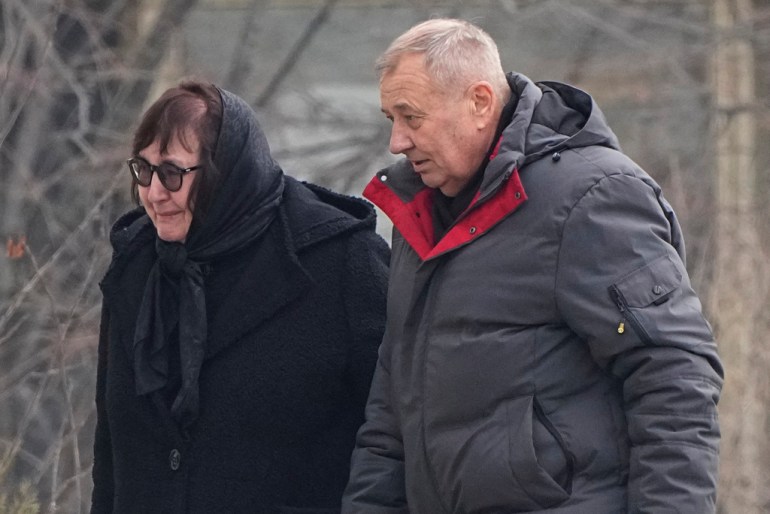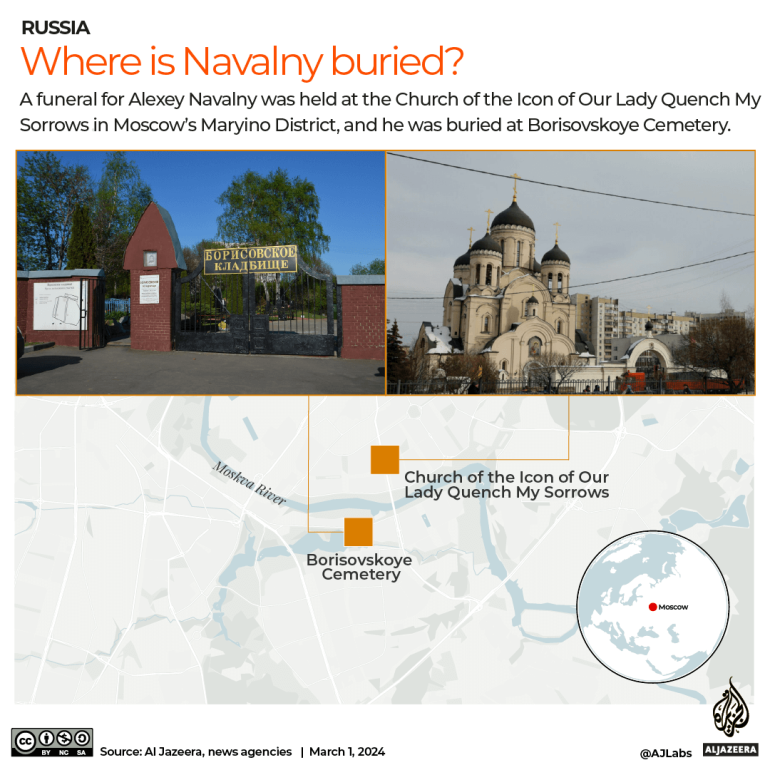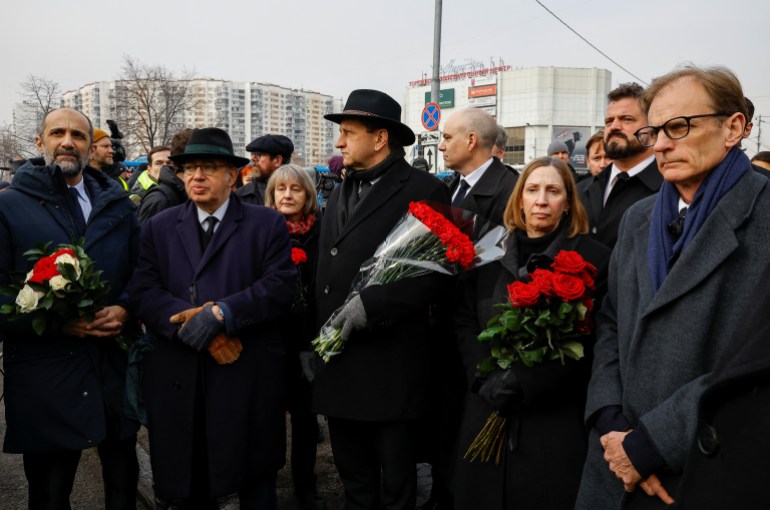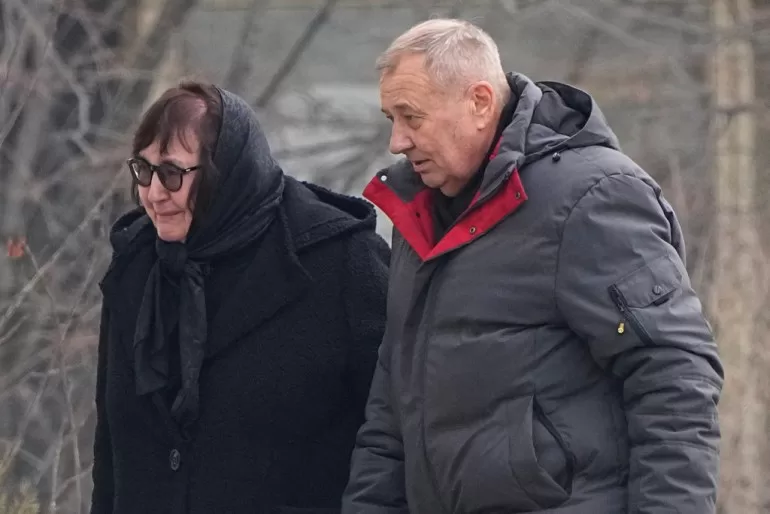Hundreds of mourners turned up near a church in southern Moscow on Friday, waiting hours to pay their respects to Navalny under the watch of large numbers of police, after the Kremlin warned against “unauthorised” protests.
Loud chants of “Navalny, Navalny” rang out as the dissident’s coffin was carried out of a black hearse on arrival at the church in the Maryino district, the passage open despite the heavy police presence and antiriot police trucks. Navalny’s allies said thousands of people were in attendance.
After a short service, pallbearers carried his coffin out for burial at the capital’s Borisovskoye cemetery.
In video streamed from the Borisovskoye cemetery, Navalny’s mother Lyudmila and father Anatoly stooped over his open coffin to kiss him for the last time as a small group of musicians played.
Crossing themselves, mourners stepped forward to caress his face before a priest gently placed a white shroud over him and the coffin was closed.

Navalny, President Vladimir Putin’s fiercest critic inside Russia, died at the age of 47 in an Arctic penal colony on February 16, sparking accusations from his supporters that he had been murdered.
The Kremlin has denied any state involvement in his death.
Kremlin spokesman Dmitry Peskov earlier warned that “unauthorised gatherings will be in violation of the law and those who participate in them will be held responsible”, according to Russia’s TASS news agency.
Rights organisation OVD-Info claims that some 400 mourners have been detained at memorials for Navalny since his death.
The French and German ambassadors were in the crowd on Friday, as were some of Russia’s last free independent politicians.
Among the large crowd of mourners, some chanted, “Russia will be free”, “No to war”, “Russia without Putin”, “We won’t forgive” and “Putin is a murderer.” Police were present in large numbers but did not intervene.
“People like him shouldn’t be dying: honest and principled, willing to sacrifice themselves,” said one mourner, Anna Stepanova, outside the church.
“What are they afraid of? Why so many cars?” she said. “The people who came here, they are not scared. Alexei wasn’t either.”

Mysterious death
Navalny was known for his outspoken and uncompromising criticism of Putin.
His funeral came after a battle with authorities over the release of his body following his as-yet unexplained death in detention. His body was held in a morgue for eight days before being returned to the family.
Navalny’s widow, Yulia Navalnaya, is outside of Russia and did not attend the funeral; neither did Navalny’s two children.
Yulia previously accused Putin of murdering her husband and then delaying the release of his body in a bid to prevent him from having a dignified public burial.
Kremlin spokesman Peskov has criticised the accusations made by her and some Western leaders as “vulgar”.

Western governments have been quick to hold the Kremlin responsible, but have stopped short of making direct accusations of involvement.
Several churches in Moscow had refused to hold the service before Navalny’s team got permission from the Church of the Icon of Our Lady Quench My Sorrows, close to where Navalny lived before his 2020 poisoning, treatment in Germany and subsequent arrest on his return to Russia in 2021.
Addressing the European Parliament this week, Yulia told lawmakers her husband had been tortured for three years.
“He was starved in a tiny stone cell, cut off from the outside world and denied visits, phone calls, and then even letters,” she said.
Navalnaya has pledged to continue his life’s work and urged to “fight more desperately, more fiercely than before.”
